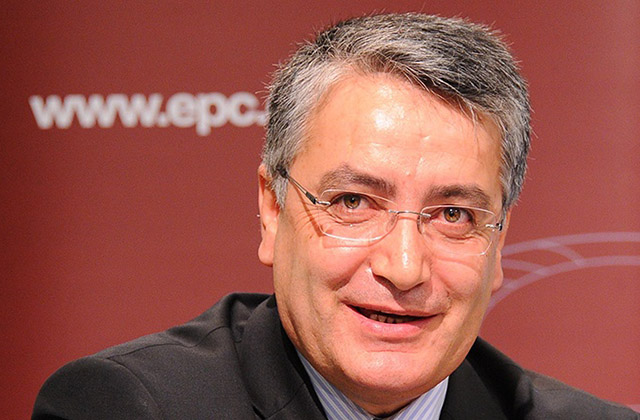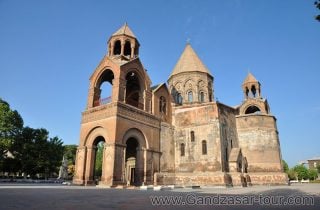Turkey to Face a Civil War

After last year’s early parliamentary elections on November 1, Turkey entered another stage of instability and fear atmosphere. As a result of the last voting, Turkey’s leading “Justice and Progress” party won, obtaining 49.4% of votes, pro-Kurdish “People’s Democratic Party” (HDP)—10,7%, People’s Republican Party—25,4%, and nationalist “National Movement” party—11.9%, meanwhile parliamentary elections held on June 7 more precisely showed people’s attitude towards the authorities.
Note, in the elections of June 7, “Justice and Progress” party obtained 40.9% of votes, and in the parliament of 550, got 258 mandates, “People’s Democratic Party”(HDP)—25.0%, getting 132 seats, People’s Republican Party—16.3%, getting 80 seats, and “National Movement” party—13.01% with 80 seats. In the center of Erdoğan’s post-election doctrine lies the fear of development of Kurdish state, which led to Turk-Kurdish tension throughout the whole country, including terror acts. “168 Hours” talked to Nazmi Gür, vice-president of HDP, on current developments in Turkey.
– Mr. Gür, after the last elections, basically, anticipations by Western analysts that Erdoğan will centralize power and authoritarianism in the life of both domestic and foreign policies, exerting more pressure over the Kurds, Syrians on Turkey-Syria border, not changing its policy in Syria became a reality. What’s currently going on in Turkey and how long will the situation last?
–That last phase of tension initiated after the elections of June 7, when the leading political party, basically, was defeated, obtaining very few votes, and the opposition obtained enough votes, then in elections of November 1, it falsified the votes, illegally maintaining power and declaring a new war on Kurds both in Syria and in Iraq. This is the way he acts. However, developments in the Middle East, especially in Syria, threaten him and Turkish authorities, that Kurds will develop a new democratic power in the region and will propose a new life not only to Turkey, but to the entire Middle East. This is the reason for this war against Kurds.
–How do you see unfolding of the situation, and generally, settlement of the Kurdish issue?
– Presently it’s complicated. Last July Erdoğan overturned peaceful process in Turkey and launched a war against Kurdistan, Turkish air force applied rather heavy equipment in Kurdistan. After it tension in Turkey originated. There are three crucial points, which I’d like to stress. The first one, Erdoğan will never recognize rights of Kurds, vivid evidence to which was overturning of initiated peaceful process, which was inspiring hope for the issue settlement. The second one, Abdullah Öcalan has been in powerful, inhuman isolation, for about a year, from last April, nobody visited him, and this is another issue, that pushes for tension. The third one, Turkey’s authorities, in particular, power structures, have blockaded Kurdish-populated cities, like Jzir, Nsedi, Shrnak, Kote, Dilja and, surely, among the most important ones, Sur district in Diyarbakir, where Armenian serious cultural heritage is available as well.
This district was completely destroyed, violence and tension is ongoing, and not only ongoing, but more deepening. In this case, it’s really hard finding peaceful settlement, but our party is actively investing efforts in democratic settlement of Kurdish issue. We seriously advise Turkey’s authorities to suspend aggression against Kurds and large-scale activities in Kurdish cities, establish ceasefire and initiate a peaceful process. We work in this direction, however, it’s still useless. As it’s useless yet, instability will be maintained.
–In their statements Western officials obviously don’t speak of Turkish authorities with big trust, and some experts don’t exclude pressures. Is it possible that this may become a serious impact leverage?
– If you ask Erdoğan, whether he’ll change his policy towards Kurds, he’ll reply he can’t. From his staff, from the government and the authorities in general, there is no ground to consider that there is desire for a change, up to day international platforms gave this trust to it. However, I’d also add that he’s afraid, he doesn’t want to be a second Mursi.
The EU and the USA—it’s crucial allies—should exert pressure on him, so that he changes his aggressive policy against Kurds, that will put Turkey in quite a bad situation. Threat for civil war in Turkey is very high, which may become another disaster, like Syria. All international platforms and structures should exert pressure by any possible way on Erdoğan, however, on the other hand, it’s clear that this will lead to bigger migrant crisis. The situation is complicated, but pressure is necessary.
– How do you assess the possibility of Kurdish autonomy?
–This is what Kurds are fighting in Turkey. Currently this doesn’t seem realistic, but to the least Kurds will agree on, is exactly the perspective, which is currently vague.
– What position do Armenia-Turkey relations hold in Turkey’s foreign policy doctrine?
–I consider, in a short-term perspective radical changes in Armenia-Turkey relations won’t be recorded, attitude of the authorities towards Genocide and Armenians didn’t and won’t change. The authorities currently are busy with other issues, as you see.
– Turkish officials recently were repeatedly touching upon peaceful settlement of NK conflict, which makes some experts think that Turkey will try to interfere with NK conflict, especially on account of the fact that positions of Turkey and Azerbaijan in the Middle East were in contrast, and will try to restore emerged issues in ties with Azerbaijan through NK conflict. What will you say in this regard?
– In fact, Armenia-Turkey relations, NK conflict, Turkey-Azerbaijan relations, existent situation in Turkey are linked to each other. I understand, that Armenia has complaints regarding preconditions, however, we shouldn’t forget about Turkey-Azerbaijan strategic relations, gas and oil. I don’t expect mediation from Turkey. The latter may take some steps, I mean, withdrawing its preconditions, however, other relations between Turkey and Azerbaijan may essentially change, which is inadmissible by Turkey’s authorities.
By Araks Martirosyan

























